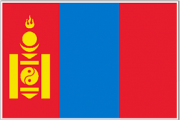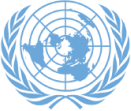69TH SESSION OF THE UN GENERAL ASSEMBLY,
THIRD COMMITTEE
AGENDA ITEM 68 (a)
Implementation of human rights instruments
STATEMENT BY H.E. AMBASSADOR ENKHTSETSEG OCHIR,
REPRESENTATIVE OF MONGOLIA
21 October 2014
My delegation welcomes the Report of the Chairs of the human rights treaty bodies on their twenty-sixth meeting and supports actions taken toward harmonizing their working methods and simplifying reporting procedure pursuant to the landmark resolution 68/268 of the General Assembly.
Full and effective implementation of international human rights instruments by States parties is critical to the promotion of universal respect for and observance of human rights and fundamental freedoms. Here, I wish to underscore the importance of capacity-building and technical assistance provided by the Office of the High Commissioner for Human Rights to States in need, in fulfilling their reporting obligations.
Madame Chair,
As a country which committed itself to the 9th Millennium Development Goal on strengthening human rights and fostering democratic governance, Mongolia recognizes the centrality of human rights in development and acknowledges that human rights, the rule of law and democracy are interlinked and mutually reinforcing.
Today, Mongolia is a party to more than 280 multilateral conventions, including core international human rights treaties and conventions. Ensuring human rights and the rule of law is at the heart of the ongoing legal reform aimed at streamlining the existing legislation as well as bringing the body of national laws in line with the international commitments and standards.
Under the Constitution of Mongolia its international treaties have the same effect as domestic legislation. Since the ratification of the Second Optional Protocol of the International Covenant on Civil and Political Rights in 2012,step-by-step measures have been taken to amend the existing legislation in order to abolish death penalty in law and practice.
Earlier this month, Parliament of Mongolia has ratified the International Convention for the Protection of All Persons from Enforced Disappearance. Moreover, we are now at the final stage of ratifying the Optional Protocol to the Convention against Torture and Other Cruel, Inhuman or Degrading Treatment or Punishment and the Third Optional Protocol to the Convention on the Rights of the Child on a Communications Procedure.
Recognizing the unique role played by the Universal Periodic Review mechanism, the Government of Mongolia has adopted an action plan to follow through the UPR recommendations on its first national report and has been engaging all the relevant stakeholders in its implementation, including the National Human Rights Commission and civil society.
Mongolia has recently submitted its mid-term report on the implementation of the UPR recommendations and the preparation of its second report is currently underway. Furthermore, we have recently submitted our combined 19-21 periodic reports on the Convention on the Elimination of all Forms of Racial Discrimination and combined 8th and 9th periodic reports on the Convention on the Elimination of All Forms of Discrimination against Women.
Upon the review of the 2003 National Action Program on Human Rights, the Government is presently working on the development of a new action plan reflecting emerging challenges faced in the promotion and protection of human rights.
Mongolia has been consistently supporting the work of special mandate holders and extended a standing invitation to all special procedures back in 2004. Since then we received 8 visits by the Special Rapporteurs on the right to food, on the right to education, on torture and other cruel, inhuman or degrading treatment or punishment, on extreme poverty and human rights as well as the Working Group on business and human rights. Mongolia stands ready to cooperate and assist Special Rapporteurs in ensuring their independent mandate, follow through their recommendations.
In 2001, Mongolia established the independent National Human Rights Commission in full compliance with the Paris Principles. The Commission is mandated to supervise ensurance of human rights and freedoms and implementation of national laws and international obligations on human rights, to demand restoration of violated rights and to make proposals and recommendations to state authorities. The Commission was admitted as a full member of the Asia-Pacific Forum of National Human Rights Institutions (APF) in 2001. It submits annual reports on human rights situation in the country for consideration and follow-up action by the Parliament.
Madame Chair,
Mongolia supports the principles of non-selectivity, universality and indivisibility of human rights and firmly believes that promotion and protection of human rights should be based on the principle of cooperation and genuine dialogue. With this mind, we look forward to closer cooperation with the human rights treaty bodies and other member states in promoting the implementation of the human rights instruments.
Thank you.


